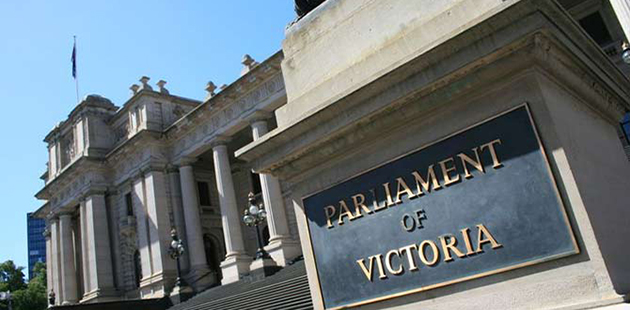 LGBTI community organisations in Victoria have praised the recommendations of the Royal Commission into Family Violence, tabled in the Victorian Parliament today.
LGBTI community organisations in Victoria have praised the recommendations of the Royal Commission into Family Violence, tabled in the Victorian Parliament today.
In its report released today, the Royal Commission has acknowledged that family violence in LGBTI communities is an “invisible problem” within the broader community and the family violence system and that “all parts of the family violence system – including police, the courts and specialist family violence services – must improve their response to LGBTI communities.” The Commission also acknowledges that the LGBTI victims have been “inadequately supported by service providers.”
“It is encouraging that the Royal Commission has acknowledged that LGBTI people experiencing family violence have not been adequately supported,” said Victorian Gay and Lesbian Rights Lobby Co-Convenor Sean Mulcahy. “In this climate, it is not surprising that a half to two thirds of people in LGBTI relationships do not access support when experiencing family violence.”
“The report of the Royal Commission means it’s an exciting time for everyone – support services, victims, but especially for LGBTI community,” said Anti-Violence Project Executive Director Greg Adkins. “We’re out of the closet and ready to stand shoulder to shoulder with the broader community as we tackle a long term response to family violence.”
The Royal Commission’s report contains a number of key recommendations to address the issue of LGBTI family violence including:
- all funded family violence programs to achieve Rainbow Tick accreditation by 2018, with additional funding provided to enable organisations to achieve this accreditation
- legal and other resources for LGBTI people experiencing family violence
- community education campaigns
- training and advice to specialist family violence services
- safe accommodation for LGBTI victims
- a review of the Equal Opportunity Act and Births, Deaths and Marriages Registration Act, including:
- providing protections against discrimination for intersex people
- ensuring that transgender and intersex people can have their self-affirmed gender recognised and protected
- issuing guidelines to make it clear that specialist family violence services should not discriminate against transgender or intersex victims
- amending forms to include a field to record ‘other’ gender
“These recommendations are critical to ensuring that LGBTI people can access family violence services who understand their particular needs and without a fear of being turned away,” said Mr Mulcahy. “The recommendations also highlight the need for inclusive community education and awareness campaigns that encourage LGBTI people experiencing family violence to seek help.”
The report comes off the back of the Victorian Government announcing $145,000 for the Victorian AIDS Council to deliver behaviour change programs for gay and bisexual men. The Lobby has also been working with other community groups on a pilot program aimed at addressing LGBTI family violence.
“It is crucial that the Government provides funding for LGBTI specialist services and emergency accommodation so that the Royal Commission’s recommendations can be properly implemented,” said Mr Mulcahy.
“LGBTI community-led organisations already provide a first point of contact for victims of violence, and family violence is among the mix. Community-led participation in preventing family violence is important,” added Mr Adkins.
For more information, visit: www.vglrl.org.au or www.antiviolence.info for details.
Image: Parliament House, Melbourne
